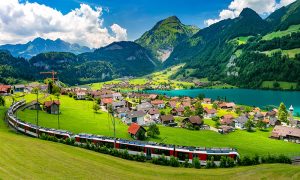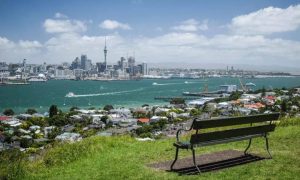Indonesia, a Southeast Asian country with the world's largest number of islands and a rich culture, has attracted a large number of foreigners in recent years who have chosen toimmigrants. This tropical land is not only blessed with beautiful beaches and abundant natural resources, but also a vibrant urban life and a unique cultural scene. However, for manyrecent immigrantsAdjusting to life in Indonesia can be a challenging journey. From cultural differences to the details of daily life, this article will provide you with a complete guide to help you adapt smoothly to theLife as an Indonesian ImmigrantThe
I. Acculturation: Transition from language to social habits
Indonesia is a multi-ethnic and multi-lingual country whose main languages areIndonesian (Bahasa Indonesia), while English is widely used in cities and tourist areas, the mastery of Indonesian is crucial in everyday life. For new immigrants to Indonesia, the following areas require special attention:
1. Learning Indonesian
If you plan to live in Indonesia for an extended period of time, mastering the Indonesian language is the first step in integrating into the local community. While many Indonesians can speak English, in rural or non-touristy areas, Indonesian is almost the only means of communication. Fortunately, Indonesian has a simple grammar and clear pronunciation rules, making it less difficult to learn. Many immigrants choose to improve their language skills through language courses, language exchanges or daily communication.
2. Cultural differences and etiquette
Indonesian culture is heavily influenced by Islam, and religious and social etiquette play an important part in daily life. Migrants need to pay special attention to the following aspects when interacting with locals:
-
Respect for elders: There is a great deal of respect for elders in Indonesian society, and young people usually show respect to their elders in polite ways, such as using honorifics.
-
Intimacy in social situations: Relationships in Indonesia are usually informal, especially among family and friends, and intimate body language such as handshakes, hugs and even kisses on the cheek are common.
-
religious holiday: Indonesia is the largest Muslim country in the world and many important holidays such as Ramadan and Idul Fitri have a significant impact on society and daily life. During Ramadan, many stores and restaurants have shortened opening hours and special care needs to be taken when eating out during the fasting period.
3. Food culture
Indonesian cuisine is rich and varied, with local dishes varying from place to place, common ones such asSeafood in Bali,Fried Noodles in Jakarta,Javanese barbecue meatetc. While traditional Indonesian meals are based on rice, noodles, seafood and spicy foods, many cities such as Jakarta and Bali also have a wide range of international restaurants where foreigners can easily find something to suit their tastes.
However, the common use of chili peppers and coconut milk in Indonesian food may be a challenge for some first-time foreigners. Adapting to Indonesia's food culture may take time, but try different regional cuisines and enjoy exploring new flavors.
II. Daily life: housing, transportation and medical services
1. Housing
In Indonesia.Diverse housing optionsFrom modern apartments in Jakarta to vacation villas in Bali, expats can choose housing that suits their needs and budget.
-
Big Cities: In major cities such as Jakarta and Surabaya, apartments are the most common type of accommodation chosen by foreigners. These apartments are usually fully furnished and offer 24-hour security and convenient amenities. However, the rent for these apartments is relatively high.
-
Resort: Tourist hotspots such as Bali offer more villas and vacation properties for immigrants who wish to enjoy a peaceful life.
-
Renting vs. buying: Foreigners have restrictions on the real estate market in Indonesia and are usually only allowed to purchase apartments (not land). However, many immigrants choose to achieve a more flexible lifestyle by renting.
2. Transportation
Indonesia has a relatively complex transportation system, especially in large cities where traffic congestion is the norm.
-
Public transportation: Large cities such as Jakarta provide public transportation such as subway, buses and cabs. Although the public transportation system is developing, it is still not convenient enough in many areas. Therefore, many foreigners choose to usetaxi softwareSuch as Go-Jek or Grab, these platforms offer convenient transportation services at relatively reasonable prices.
-
Bicycles and motorcycles: The use of motorcycles is a very common mode of transportation in small cities or resort areas. Motorcycle rentals are relatively inexpensive and transportation is more flexible.
3. Medical services
Indonesia's healthcare system is relatively well-developed in the larger cities, and many hospitals offer international medical services and English translation. For foreigners, there are a number of optionsInternational Clinicrespond in singingPrivate hospitalsThey provide better quality medical care.

-
Medical insurance: It is recommended that theImmigration to Indonesiapurchasehealth insurance. This will help ensure that timely medical help is available in case of illness or accident. Especially for immigrants who are long-term residents, it is wise to purchase local health insurance.
-
Drug Purchase: Drugs are relatively easy to purchase in Indonesia, with many available at local pharmacies, but some specialty medications may require a doctor's prescription.
III. Cost of living and social welfare
1. Cost of living
The cost of living in Indonesia is relatively low, especially compared to Europe, America and other large Asian countries. Major expense items include:

-
Rent: Apartment rents are relatively high in large cities such as Jakarta, while they are much cheaper in other cities and rural areas.
-
Catering: Eating out is very cheap in Indonesia, with an average street food meal costing around Rp 20,000 to Rp 50,000 (about US$1 to US$3). Dining at high-end restaurants is also far less expensive than in Europe and the United States.
-
Everyday Shopping: Prices of goods in supermarkets and markets are more reasonable, especially for locally produced food, while imported goods are more expensive.
2. Social welfare and taxation
Indonesia provides certain social welfare guarantees for long-term resident immigrants, especially in the areas of healthcare and pensions. In terms of taxation, Indonesia has a liberal tax policy with low personal income tax, but there is also a certain tax burden for high income earners.
IV. Conclusion: Tips for enjoying life in Indonesia
Immigration to Indonesia, whether for work, investment or retirement, a certain amount of acclimatization is required. From language to social habits to all aspects of daily life, Indonesia offers a unique and enriching living experience for foreigners. While there may be challenges in terms of culture and lifestyle, once you have adapted to the pace of life in Indonesia, you will find that every day here is full of newness and possibilities.






